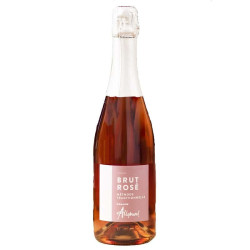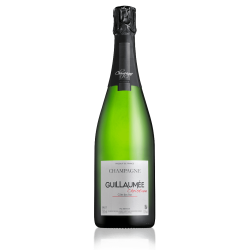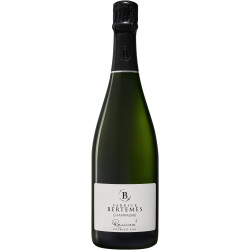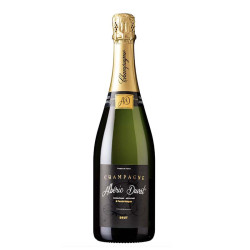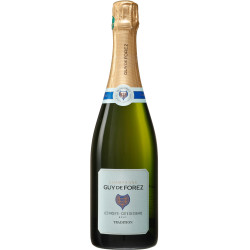Unbeatable !
ORGANIC WINES: 6 QUESTIONS YOU MAY HAVE

6 Questions You Might Have About Organic Wine
What Is Organic Wine?
Organic wine has become increasingly popular in recent years, both in France and abroad. However, the concept of organic wine is still not entirely clear to everyone. What exactly does this term mean? Does its taste differ from that of traditional wine? Does organic wine cost more? With this article and insights from winemaker Fabien Chasselay, organic wine will no longer hold any secrets for you!
- What Is Organic Wine?
Officially recognized since 2012, the Organic Agriculture (AB) label adheres to specific standards set by Europe, which require special care in vineyard management. While these criteria are too numerous to list individually, they all involve using natural products and banning pesticides, synthetic chemicals, fertilizers, and GMOs. Since 2012, the AB label applies not only to vineyard management but also to all stages of winemaking, including bottling. Therefore, the AB logo must appear on the labels of certified organic wines.
“Organic wine represents the result of a viticulture approach that deeply respects the vine and, more broadly, nature,” explains Fabien Chasselay from Domaine JG Chasselay (Beaujolais). “Organic farming allows for a more personal and precise touch in the wine. It’s a real pleasure to work this way. We feel more in harmony with nature,” he adds.
- Does Organic Wine Have a Special Taste?
This question is difficult to answer definitively! Some winemakers claim that organic wines are recognizable by their mineral and fruity character, while others note floral notes in red wine, a feature rarely found in classic French reds. Fabien believes that the taste of a wine largely depends on the taster: “Discovering a wine is like admiring a piece of art. Some will declare a painting as an absolute masterpiece, while others may not understand it. It’s very subjective! I don’t think a wine tastes special just because it’s organic; it’s more about perception and feelings.” However, an organic wine without sulfites may have a unique taste.
- Does Organic Wine Cost More?
Most winemakers and growers who choose organic viticulture do so to focus on quality over quantity. As a result, labor is more intensive and yields are less predictable, since organic vines are more fragile, leading to lower overall yields. This typically results in a slight increase in price compared to conventional wine, although it is difficult to estimate precisely. For perspective, the Agency for Organic Farming reports that the average price of an organic wine ranges from €1.80 to €8.70 per bottle, compared to €6.90 for conventional wine.
For Fabien, organic wine doesn’t necessarily have to cost more: “Certainly, organic wine production requires a bit more time and resources. But once we obtained the ‘organic’ label, we did not raise our prices. We simply targeted a larger and more quality-focused customer base. What matters most is the value for money. From this perspective, organic wine is not more expensive than a mid-range conventional wine. It’s actually possible to buy quality organic wine for under €10,” he emphasizes.
- Should You Drink Organic Wine or Conventional Wine?
Now that you know more about organic wine, you might wonder whether to stick with your usual wine or switch to one that respects nature. For Fabien, there’s no need for this debate. “It would be a mistake to pit these two types of wine against each other and be categorical about choosing only one. You can enjoy both!” he believes. “Don’t demonize conventional wine! Each producer makes wine according to their vision. It’s important to respect that,” Fabien adds.
- What Are the Differences Between Organic, Natural, and Biodynamic Wine?
These three terms all indicate a winemaker’s concern for the products used in viticulture and winemaking and the role of human intervention in the vineyard ecosystem. They stem from different but sometimes compatible philosophies, which complicates the topic. Organic wine, as we’ve seen, is produced and vinified using plant protection products and additives allowed by organic agriculture and winemaking standards.
Biodynamics is a cultivation philosophy that views humans, soil, and vines as part of a holistic system. This system includes all microbial and animal life around the vineyard, as well as the solar system, moon, and stars. In biodynamics, the winemaker conducts viticulture, harvests, and winemaking according to an astral calendar. Additionally, biodynamic winemakers use natural preparations, including the famous cow horn manure. For example, Domaine de la Romanée-Conti practices biodynamic farming.
Natural wines, on the other hand, aim to best reflect the product of nature. A natural wine is typically made from grapes cultivated with minimal intervention and vinified naturally, without additional interventions.
Note that while both organic and biodynamic agriculture have labels, natural wines are still loosely regulated.
- Does Organic Wine Contain Sulfites?
The short answer is: yes, probably. Even most natural wines contain sulfites. Although more winemakers are experimenting with sulfite-free wines, sulfite-free production is not tied to any specific label. Whether organic, biodynamic, or natural, a wine without sulfites will be labeled “sulfite-free” or “without SO2” on the bottle. Producing sulfite-free wines is complex because sulfites help prevent or limit oxidation during winemaking. Currently, a widely used designation indicating the absence of sulfites is SAINS (Sans Aucun Intrants Ni Sulfites).
